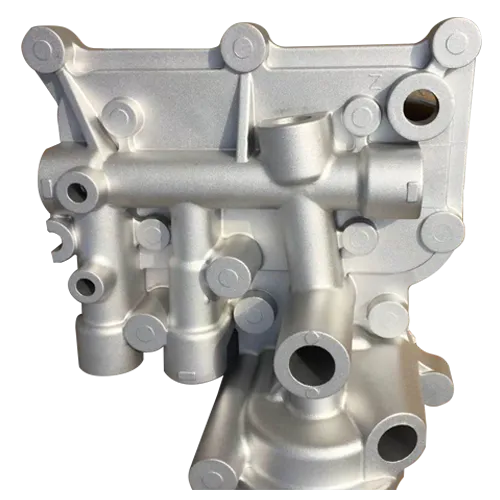Mobile:+86-311-808-126-83
Email:info@ydcastings.com
English
Exploring the Benefits and Applications of Neoprene Impellers in Modern Engineering Solutions
Understanding Neoprene Impellers Benefits and Applications
Neoprene impellers have become increasingly popular in various industries due to their unique properties and versatility. As a synthetic rubber compound, neoprene exhibits excellent resistance to oils, chemicals, and extreme weather conditions, making it an ideal material for impellers used in fluid dynamics and pump systems.
What are Neoprene Impellers?
Impellers are rotating components of a pump or a turbine that create a flow of fluid. They play a crucial role in directing and increasing the velocity of fluids as they pass through the system. Neoprene, being a resilient and durable elastomer, is used to manufacture impellers that exhibit optimal performance in demanding environments.
Unlike traditional metal or plastic impellers, neoprene impellers can withstand wear and tear better due to their inherent flexibility and toughness. This adaptability allows them to maintain their structural integrity, even in harsh operating conditions, thereby extending the lifespan of pump systems.
Advantages of Neoprene Impellers
1. Chemical Resistance One of the standout features of neoprene is its resistance to various chemicals and solvents. This makes neoprene impellers a suitable choice in industries such as chemical processing, wastewater management, and food processing where exposure to corrosive substances is common.
2. Flexibility and Strength Neoprene impellers provide a balance of flexibility and strength. While they effectively absorb shocks and vibrations during operation, they also deliver sufficient strength to handle high flow rates without deforming or failing.
neoprene impeller

3. Temperature Resilience Neoprene maintains its performance across a range of temperatures, typically from -40°F to 200°F (-40°C to 93°C). This temperature stability ensures that neoprene impellers can function reliably in both hot and cold environments.
4. Reduced Noise The rubbery nature of neoprene helps to dampen sound and vibrations, resulting in quieter operation compared to metal impellers. This is particularly advantageous in applications where noise reduction is a priority, such as residential pump systems.
5. Lightweight Neoprene impellers are generally lighter than metal counterparts, reducing the overall weight of the pump system. This can lead to easier installation and maintenance, as well as lower transportation costs.
Applications of Neoprene Impellers
Neoprene impellers are used in various applications across multiple sectors
- Marine Industry Neoprene's resistance to seawater and marine growth makes it ideal for impellers in boat engines and marine pumps. - Agriculture In irrigation systems, neoprene impellers are used for their durability against fertilizers and other chemicals. - HVAC Systems Neoprene impellers are effective in heating, ventilation, and air conditioning systems where reliability and efficiency are critical. - Chemical and Pharmaceutical Industries The chemical resistance of neoprene makes it suitable for handling hazardous substances safely.
Conclusion
Neoprene impellers are an innovative solution for many pumping applications, offering a combination of strength, flexibility, and resistance to a wide array of environmental factors. Their advantages over traditional materials position them as a go-to choice for engineers and industries seeking reliability and efficiency in fluid management systems. As technology and materials science advance, the adoption of neoprene in even more specialized applications is likely to grow, showcasing its versatility and importance in modern engineering.
-
Efficient Automobile Water Pump: Reliable Cooling for Engine ManifoldsNewsSep.01,2025
-
Premium Fan Housing & Motor Casing for Optimal AirflowNewsAug.31,2025
-
High-Performance Automobile Water Pump & Electric SolutionsNewsAug.30,2025
-
Expert Stainless Steel Casting | Precision & Durable Metal PartsNewsAug.29,2025
-
Precision Metal Castings: Aluminum, Stainless Steel & Die CastingNewsAug.28,2025
-
Superior Aluminum Castings in Automotive Engine PartsNewsAug.22,2025











